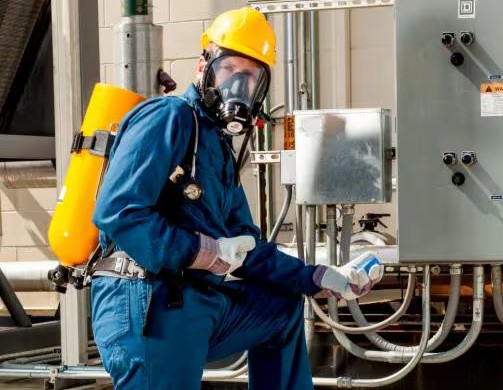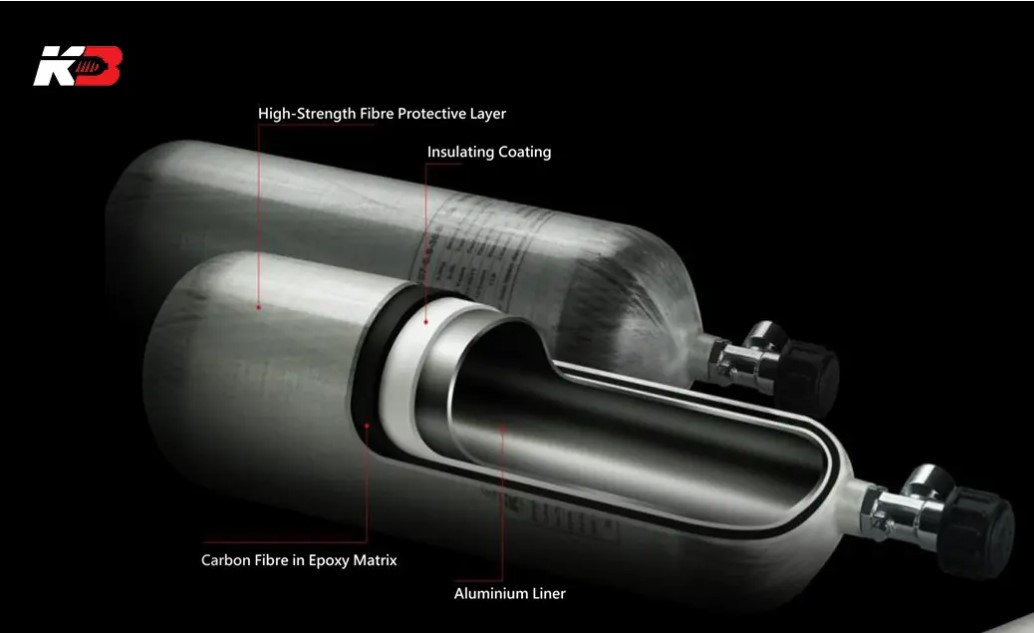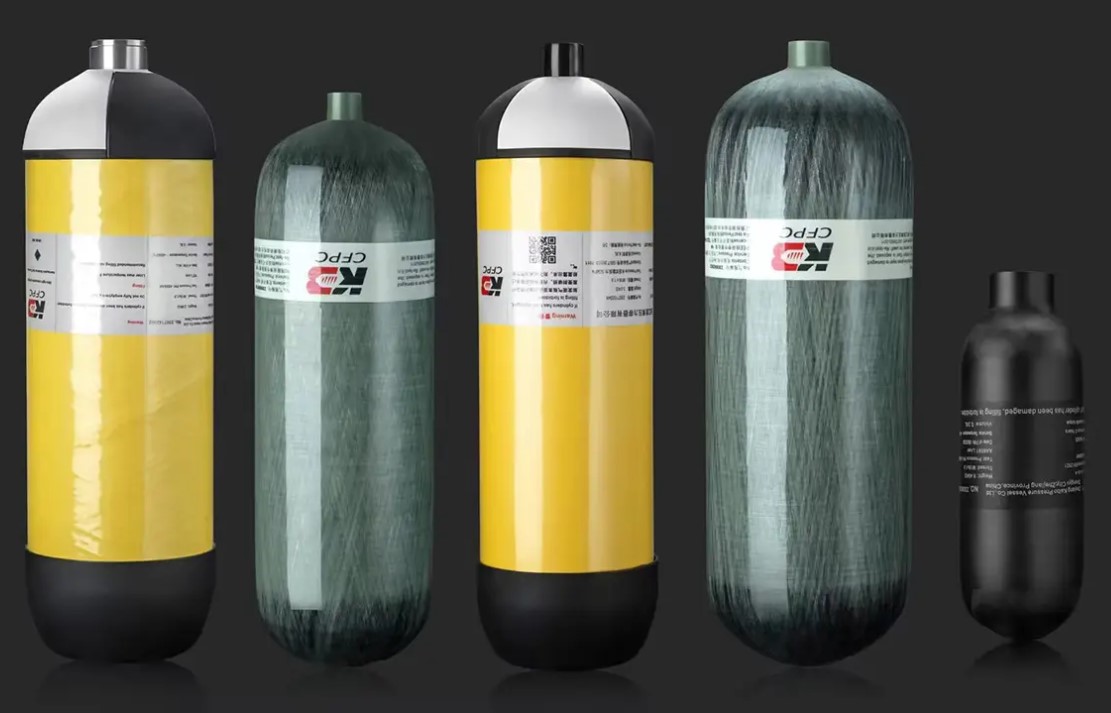The chemical industry is the backbone of modern civilization, producing everything from life-saving pharmaceuticals to the materials that make up our everyday lives. However, this progress comes at a cost. Chemical workers face constant exposure to potentially hazardous materials, ranging from corrosive acids to volatile organic compounds. To ensure their safety in these environments, reliable and effective respiratory protection is paramount.
Enter the self-contained breathing apparatus (SCBA), a vital piece of personal protective equipment (PPE) that provides a clean air supply in hazardous atmospheres. While traditional steel SCBA cylinders have served this purpose well, advancements in material science have led to the rise of carbon fiber SCBA cylinders, offering significant advantages for chemical industry workers.
The Perilous Dance with Chemicals:
Chemical production facilities can be a labyrinth of potential hazards. Leaks, spills, and unforeseen reactions can release toxic fumes, vapors, and dust particles. These contaminants can cause a range of health problems, from respiratory irritation and lung damage to even life-threatening poisoning.
The specific dangers faced by chemical workers depend on the specific chemicals being handled. For instance, workers in chlorine production facilities might encounter chlorine gas, which can cause severe respiratory distress and fluid buildup in the lungs. Alternatively, those handling organic solvents like benzene risk headaches, dizziness, and even leukemia with prolonged exposure.
Why Steel Isn’t Enough:
Traditionally, SCBA cylinders have been constructed from high-pressure steel. While robust and reliable, steel cylinders come with inherent drawbacks. Their significant weight can lead to fatigue and hinder worker mobility, crucial factors in emergency situations or confined spaces. Additionally, the bulk of steel cylinders can restrict movement and limit dexterity, potentially compromising safety during critical tasks.
The Carbon Fiber Advantage:
Carbon fiber composites have revolutionized the SCBA landscape for the chemical industry. These cylinders are constructed with a lightweight carbon fiber shell wrapped around a high-pressure aluminum liner. The result? A cylinder that boasts exceptional strength-to-weight ratio. Carbon fiber SCBA cylinders can be significantly lighter than their steel counterparts, often by as much as 70%.
This weight reduction translates to a multitude of benefits for chemical workers. Increased mobility allows for easier navigation through hazardous areas and improved efficiency during tasks. Reduced fatigue translates to longer wear times and sustained focus during emergencies. Additionally, the lighter weight minimizes strain on the wearer’s back and shoulders, reducing the risk of musculoskeletal injuries.
Beyond Weight: Durability and Safety
The advantages of carbon fiber SCBA cylinders extend beyond weight reduction. Carbon fiber is a remarkably strong material, offering excellent resistance to corrosion and impact. This ensures the integrity of the cylinder even in harsh chemical environments, where exposure to corrosive agents is a constant threat.
However, proper inspection and maintenance remain crucial for ensuring cylinder safety. Carbon fiber SCBA cylinders require regular hydrostatic testing to verify their structural integrity. Additionally, any signs of damage, such as cracks or deep scratches, necessitate immediate removal from service.
A Breath of Fresh Air for the Future:
The adoption of carbon fiber SCBA cylinders represents a significant step forward in worker safety within the chemical industry. The lighter weight translates to improved worker mobility, comfort, and endurance, all critical factors in hazardous environments. Furthermore, the durability of carbon fiber ensures reliable performance even in harsh chemical settings.
As research and development continue, we can expect further advancements in carbon fiber SCBA technology. Future iterations might boast even lighter weight designs or integrated air monitoring systems for real-time safety assessments. Additionally, research into sustainable manufacturing processes for carbon fiber could minimize the environmental impact of this vital technology.
In conclusion, carbon fiber SCBA cylinders are a game-changer for worker safety in the chemical industry. Their lighter weight, improved mobility, and exceptional durability offer significant advantages over traditional steel cylinders. As technology progresses, we can expect even more innovative designs that prioritize worker safety and comfort in this ever-evolving field. By embracing these advancements, the chemical industry can ensure its workers have the tools they need to breathe easy, even amidst a sea of potential hazards.
Post time: Jun-05-2024



